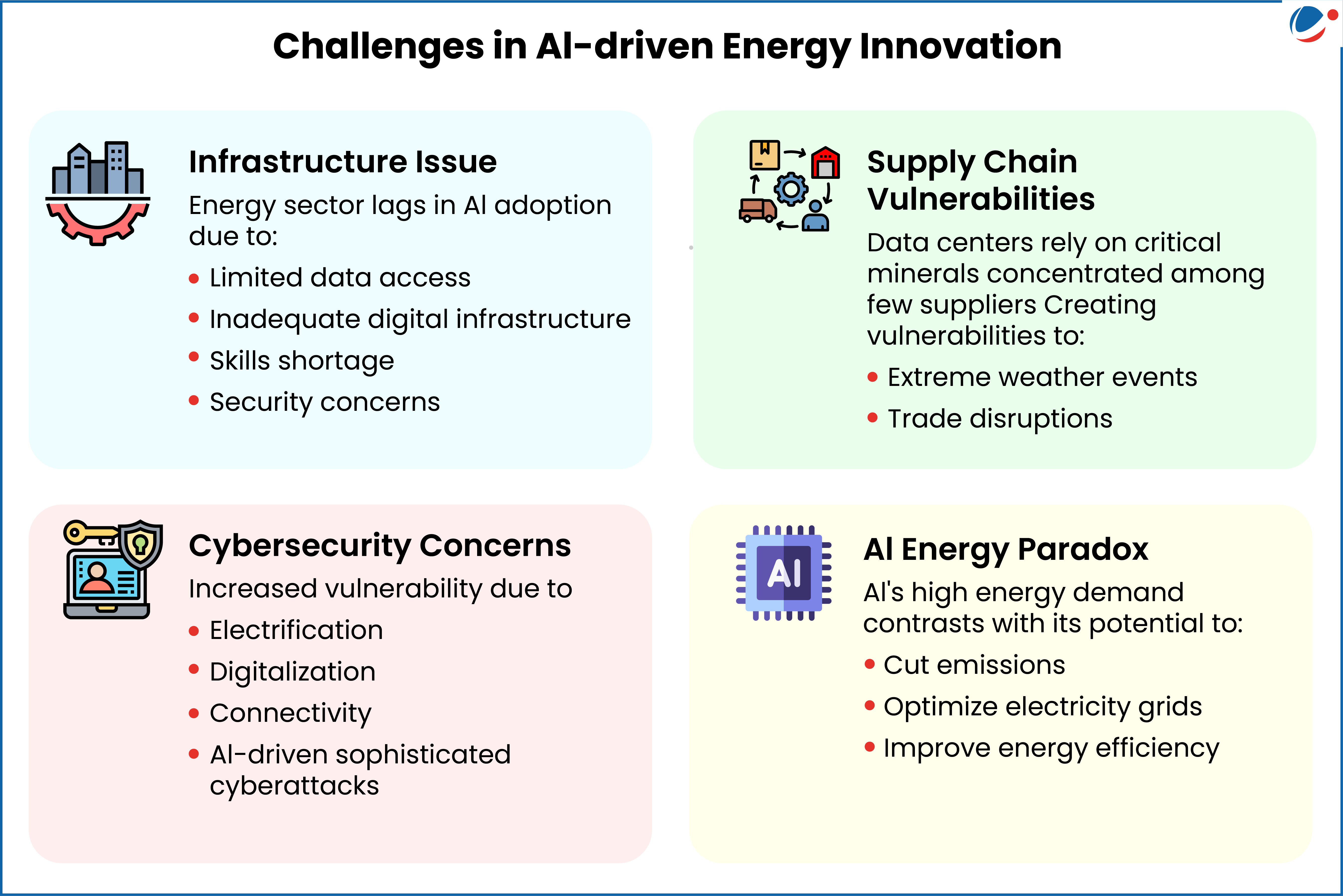The International Energy Agency (IEA) has released a report examining all aspects of the links between energy and Artificial Intelligence (AI).
Key highlights of the report
- Data Centre Energy Demand: The energy appetite of the world's data centres could reach around 945 terawatt-hours (TWh) by 2030.
- Data centres provide infrastructure for training and deploying AI models.
- Impact of AI on energy sector: AI can help optimize exploration and production of oil& gas, balancing electricity networks, improving industrial efficiency, and enhancing building systems.

- Role of Renewable energy: Half of global growth in data center demand is expected to be met by renewables, with natural gas and nuclear power also playing significant roles.
AI-Driven Innovation in Energy Sector:
- Methane Emissions in Oil & Gas: AI reduces methane leaks by enhancing detection through satellite monitoring, enabling faster repairs.
- Power Sector Emissions: AI improves efficiency at fossil fuel plants (e.g., optimizing natural gas plant conditions), lowering emissions.
- Industry Emissions: AI optimizes manufacturing processes (e.g., improving cement production fuel mix), boosting energy efficiency by over 2% and cutting emissions.
- Transport Emissions: AI enhances vehicle efficiency (e.g., better route planning, driving behavior), achieving 5-10% efficiency gains and reducing emissions.






